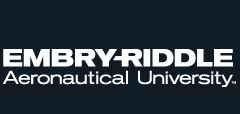Proposal / Submission Type
Peer Reviewed Paper
Location
Richmond, Virginia
Start Date
29-5-2014 9:40 AM
Abstract
The Information Trust Institute (ITI) at the University of Illinois at Urbana-Champaign is developing an entirely new multidisciplinary undergraduate curriculum on the topic of digital forensics, and this paper presents the findings of the development process, including initial results and evaluation of a pilot offering of the coursework to students. The curriculum consists of a four-course sequence, including introductory and advanced lecture courses with parallel laboratory courses, followed by an advanced course. The content has been designed to reflect both the emerging national standards and the strong multidisciplinary character of the profession of digital forensics, and includes modules developed collaboratively by faculty experts in multiple fields of computer science, law, psychology, social sciences, and accountancy. A preliminary plan for the introductory course was presented to a workshop of digital forensics experts in May 2013 and received their strong approval. Pilot versions of the introductory and introductory lab courses were taught to a mixture of computer science and law students at the University of Illinois in the fall of 2013, and were very positively received by the students, who made it clear that they appreciated the multidisciplinary approach. The curriculum, which is designed to obviate the need for expensive labs or team-teaching by specialized faculty, will be made available to other colleges and universities in order to improve the content and quality of existing digital forensics programs, to inspire and greatly facilitate the creation of new programs, and, ultimately, to increase the number of educated practitioners. The developed resources can be used as the basis for future academic programs, distance learning, and multidisciplinary, multi-institutional programs that meet evolving digital forensics educational standards. Much of the material, including a virtual laboratory, will be provided on-line. Introductory course materials will be distributed to other institutions beginning in the summer of 2014; advanced course materials should be available for distribution in 2015. Related outreach activities have been undertaken and will be continued.
Keywords: Digital forensics, Computer forensics, Curriculum development, Curriculum standards, Education standards, Training standards, Undergraduate education, Interdisciplinary studies
Scholarly Commons Citation
Bashir, Masooda; Applequist, Jenny A.; Campbell, Roy H.; DeStefano, Lizanne; Garcia, Gabriela L.; and Lang, Anthony, "Development and Dissemination of a New Multidisciplinary Undergraduate Curriculum in Digital Forensics" (2014). Annual ADFSL Conference on Digital Forensics, Security and Law. 11.
https://commons.erau.edu/adfsl/2014/thursday/11
Included in
Aviation Safety and Security Commons, Computer Law Commons, Defense and Security Studies Commons, Forensic Science and Technology Commons, Information Security Commons, National Security Law Commons, OS and Networks Commons, Other Computer Sciences Commons, Social Control, Law, Crime, and Deviance Commons
Development and Dissemination of a New Multidisciplinary Undergraduate Curriculum in Digital Forensics
Richmond, Virginia
The Information Trust Institute (ITI) at the University of Illinois at Urbana-Champaign is developing an entirely new multidisciplinary undergraduate curriculum on the topic of digital forensics, and this paper presents the findings of the development process, including initial results and evaluation of a pilot offering of the coursework to students. The curriculum consists of a four-course sequence, including introductory and advanced lecture courses with parallel laboratory courses, followed by an advanced course. The content has been designed to reflect both the emerging national standards and the strong multidisciplinary character of the profession of digital forensics, and includes modules developed collaboratively by faculty experts in multiple fields of computer science, law, psychology, social sciences, and accountancy. A preliminary plan for the introductory course was presented to a workshop of digital forensics experts in May 2013 and received their strong approval. Pilot versions of the introductory and introductory lab courses were taught to a mixture of computer science and law students at the University of Illinois in the fall of 2013, and were very positively received by the students, who made it clear that they appreciated the multidisciplinary approach. The curriculum, which is designed to obviate the need for expensive labs or team-teaching by specialized faculty, will be made available to other colleges and universities in order to improve the content and quality of existing digital forensics programs, to inspire and greatly facilitate the creation of new programs, and, ultimately, to increase the number of educated practitioners. The developed resources can be used as the basis for future academic programs, distance learning, and multidisciplinary, multi-institutional programs that meet evolving digital forensics educational standards. Much of the material, including a virtual laboratory, will be provided on-line. Introductory course materials will be distributed to other institutions beginning in the summer of 2014; advanced course materials should be available for distribution in 2015. Related outreach activities have been undertaken and will be continued.
Keywords: Digital forensics, Computer forensics, Curriculum development, Curriculum standards, Education standards, Training standards, Undergraduate education, Interdisciplinary studies

